"Oh dear life"
The war ended. Peace appeared, bright and arduous because of the chaos left behind by the war. That was the context in which a new music genre was born, considered to be "born" from revolutionary music and opened a special period, a "specialty" in the musical life of Ho Chi Minh City called: Political Song Movement (CKCT), lasting throughout the 1980s and gradually receding in the early 1990s before giving way to the blossoming of light music, of which CKCT was the forerunner. The four words seemed dry, but they were the land that gave birth to cheerful and joyful songs with the spirit of people joining hands to build a new life, when the wounds were gradually closing or gently brightened by the young hearts gradually revealing their egos before the "beloved life" and before the threshold of Doi Moi...
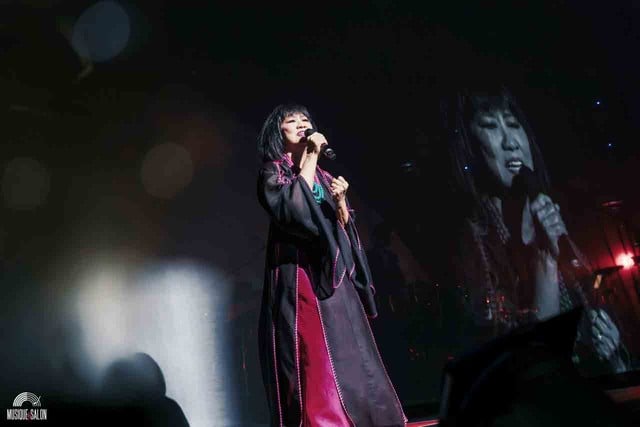
Singer Cam Van: "I am forever loved thanks to Unforgettable Song"
PHOTO: NVCC
That was the time when people heard youthful and fresh songs or songs that were "old before their time" in the early, vigorous composition period of Tran Tien with Thanh pho tre, Ve chan tren cat, Nhung doi mat hinh phan dot ... or Thanh Tung with Cam on mua thu, Ngoi sao co lon ...; affectionate and dear love songs Thanh pho tinh yeu va noi nho (Nguyen Nhat Anh - Pham Minh Tuan), Dem thanh pho dung dung sao (Tran Long An); about kisses and love between couples ( Mua xuan ben cuoc voi - Xuan Hong) or even beautiful self-questioning about human dignity ( Khat vong - Pham Minh Tuan); the not-so-distant memory of Rung goi ; or later, the innocent and pure songs of Tu Huy ( Hay dan len ), Nguyen Ngoc Thien ( Oh, beloved life ) ... Trinh Cong Son also contributed to the theme of the Tri An hydroelectric project which was very "hot" at that time with the song Ve day Tri An , or similarly Thanh Tung with Hay den cung Tri An ...
Famous but... don't know
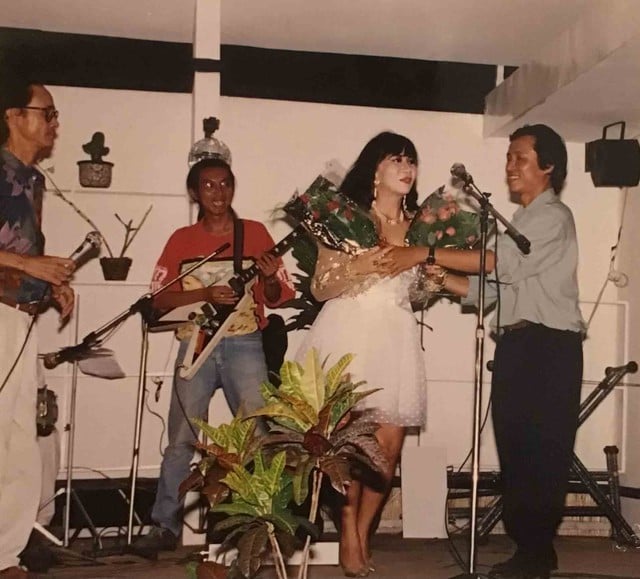
Singer Le Thu on the CKCT stage with musician Trinh Cong Son (left cover) , Tran Long An (right cover) , and Dat "Da Vang" (middle)
PHOTO: NVCC
Starting her career from the CKCT movement, singer Cam Van told Thanh Nien that she was grateful to musician Pham Minh Tuan for giving her the songs that she can remember by heart : Unforgettable Song, Country, City of Love and Nostalgia . Among them, Unforgettable Song can be said to be the "greatest asset" in her impressive career. Mentioning Cam Van is mentioning Unforgettable Song and vice versa. "I am forever loved thanks to Unforgettable Song . I still remember, when the movie of the same name was released and I went to Hanoi to perform, I realized that I was... famous, or rather Unforgettable Song was famous, because it was requested to be sung so much", she recalled with emotion.
A prominent face of the CKCT movement is singer Le Thu (often called "young Le Thu" to distinguish her from overseas Le Thu). From France, she enthusiastically shared with Thanh Nien her ever-fresh memories of a very beautiful period in her career: "Those days were poor but very happy. Artists were happy just by being called to sing, with the spirit of serving the people as the main thing, the salary was not important. The audience was used to finishing dinner and then hurriedly finishing their bowls to run to the theater, usually starting at 7 p.m. and sometimes lasting until midnight. A series of music venues were opened simultaneously in the city, singing groups took turns going on stage (those days were more about singing groups than solo singers), performing at 5-6 venues in one night, one year on Christmas Eve I even performed at 13 venues".
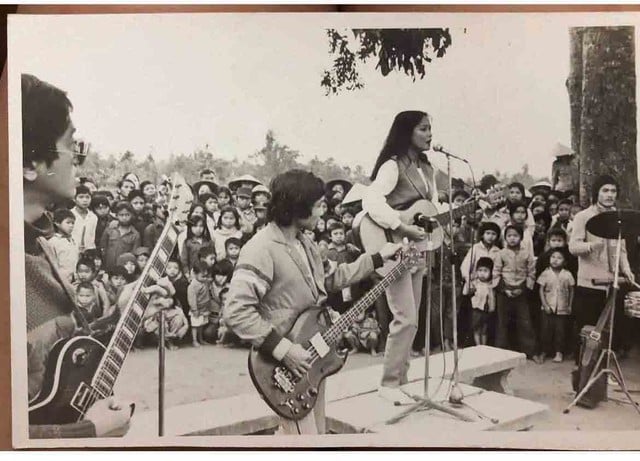
Singer Hong Hanh on a "field stage" of the CKCT movement
PHOTO: COLLECTED DOCUMENTS OF JOURNALIST - MC MINH DUC
"The pay back then was really funny. The few times I sang at factories, I was paid in... MSG, soap, sometimes even several bundles of fabric...", singer Cam Van said.
As a rare singer at that time who was continuously invited to tour abroad (of course, only in the socialist bloc), Cam Van recalled an unforgettable memory from the time she went to the GDR to attend the CKCT - World Youth and Students Festival, exactly 45 years ago: "Knowing that I came from a country that had just gone through a war, the organizers of the host country loved and took care of me very much. Seeing that I was wearing shoes that were not warm enough, they even took me to a shoe store to choose a new pair of boots. When they brought out the stewed pork leg dish, I looked at it and suddenly wanted to cry, because at that time, at home, we had a hard time eating, if only we could bring it back for everyone...", the singer of the Unforgettable Song tearfully recalled those "hard days" filled with human warmth.
The evolution of revolutionary music
It can be said that the resistance songs and revolutionary music performed in a light music style in Ho Chi Minh City after reunification contributed to the birth of the CKCT movement.
Because of such a solid foundation, combined with the level of performance, arrangement, music playing, recording... quite good in Ho Chi Minh City at that time, the songs called CKCT both inherited the heroic, joyful, optimistic sound of revolutionary music; and easily mixed and integrated with the new musical styles that were beginning to enter our country at that time. The interesting thing is that at the same time, in the North and the South, two styles (mainstream music and pop music) coexisted in the same music genre. That was inevitable, when life gradually stabilized and the country developed more, it was also the time when other music genres emerged and had a "market share". Pop music and youth music developed naturally, because after the commonality of the revolutionary music period, it was also the time when the uniqueness of life spoke up. With revolutionary music, over time, a new audience was also formed, they listened to many genres of music at the same time, and also had the desire to listen to mixed styles, the intersection of music genres together, from which there were revolutionary songs performed in the style of light music, and were enthusiastically received by young audiences, because it was close to what they listened to every day. But there was also a large audience that had listened to revolutionary music in the style of the main lyrics from the resistance period, and for them it was classic, unchangeable, and there was also a generation of artists pursuing this style, they preserved that music as it was.
Journalist - MC Minh Duc
Source: https://thanhnien.vn/nhung-cau-chuyen-nhac-do-bai-ca-khong-quen-giua-thang-ngay-vat-va-185250430213951815.htm



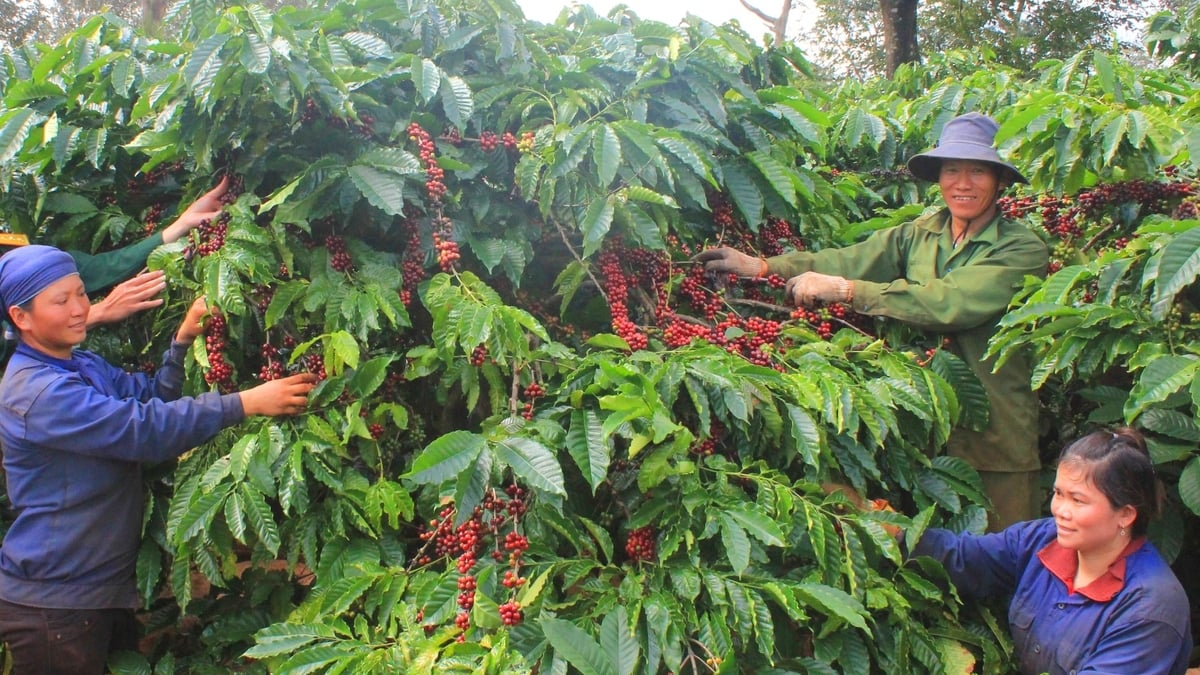
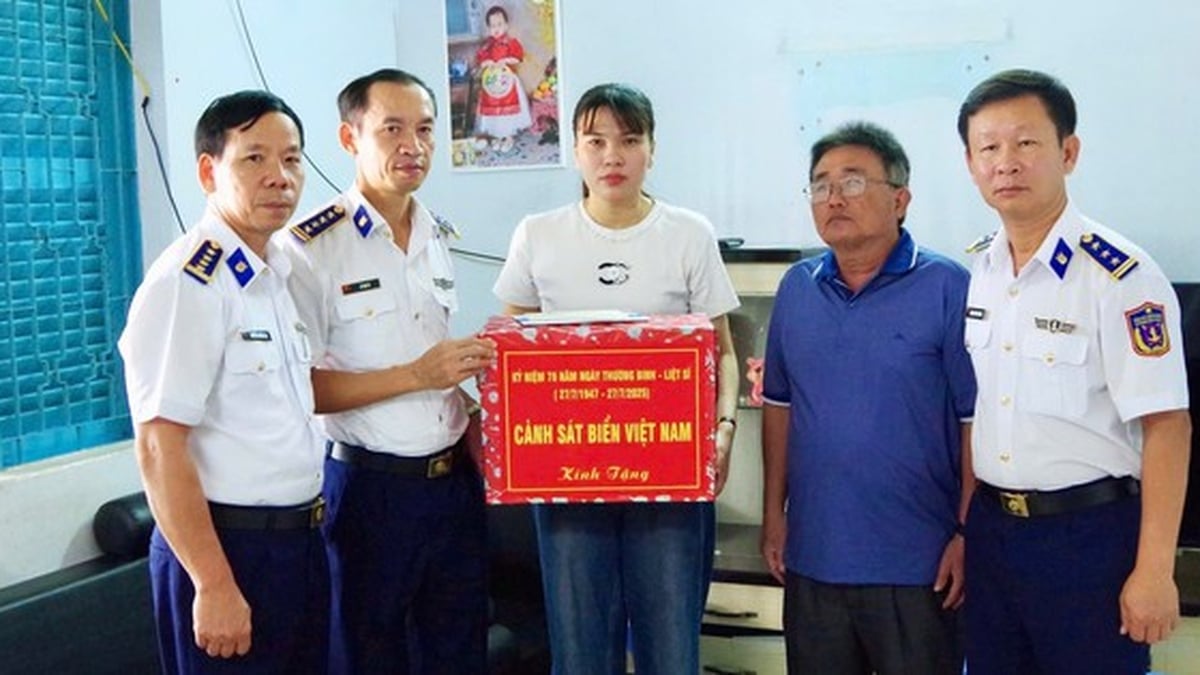


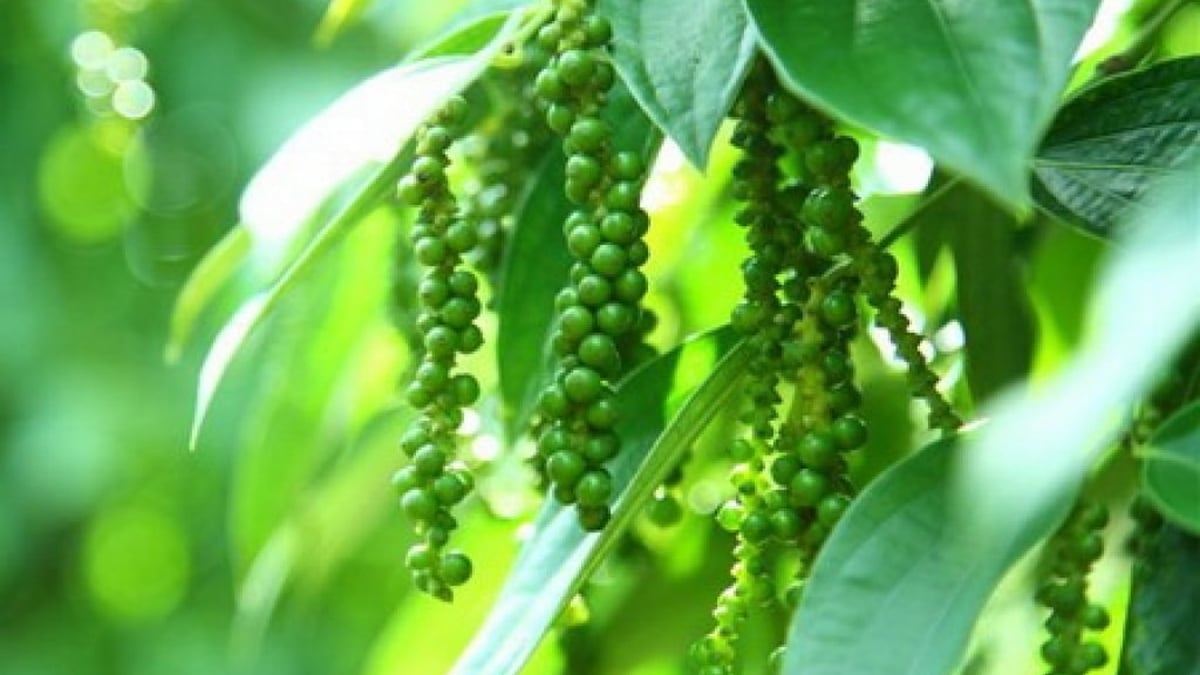
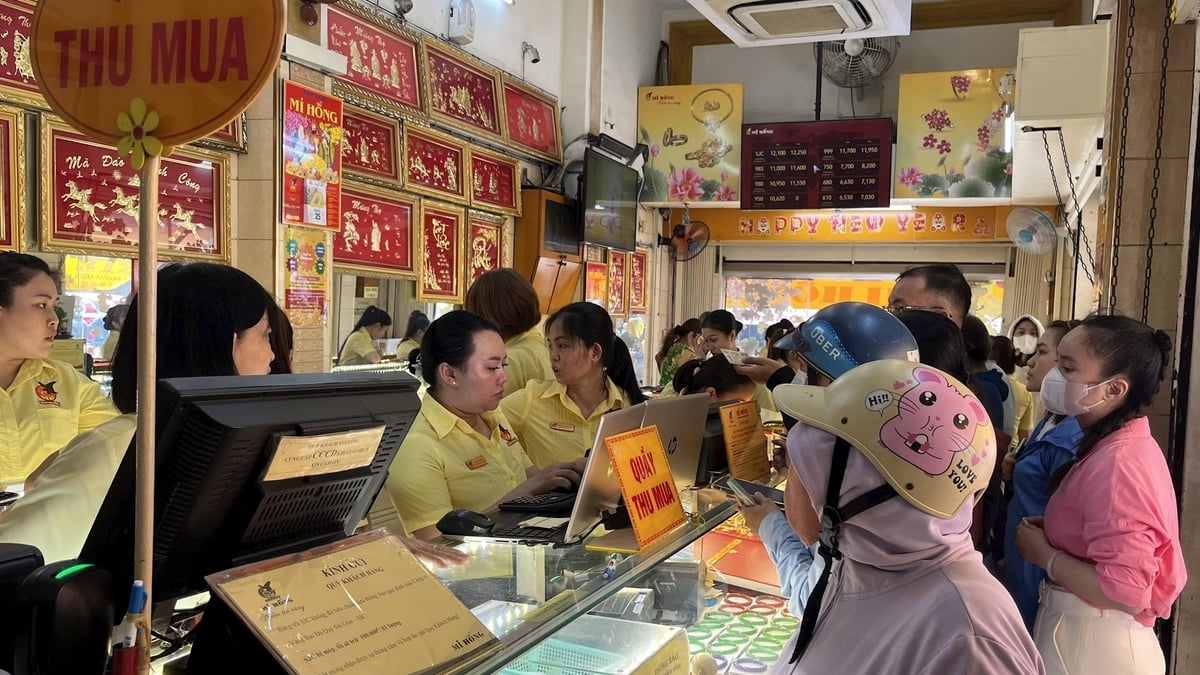
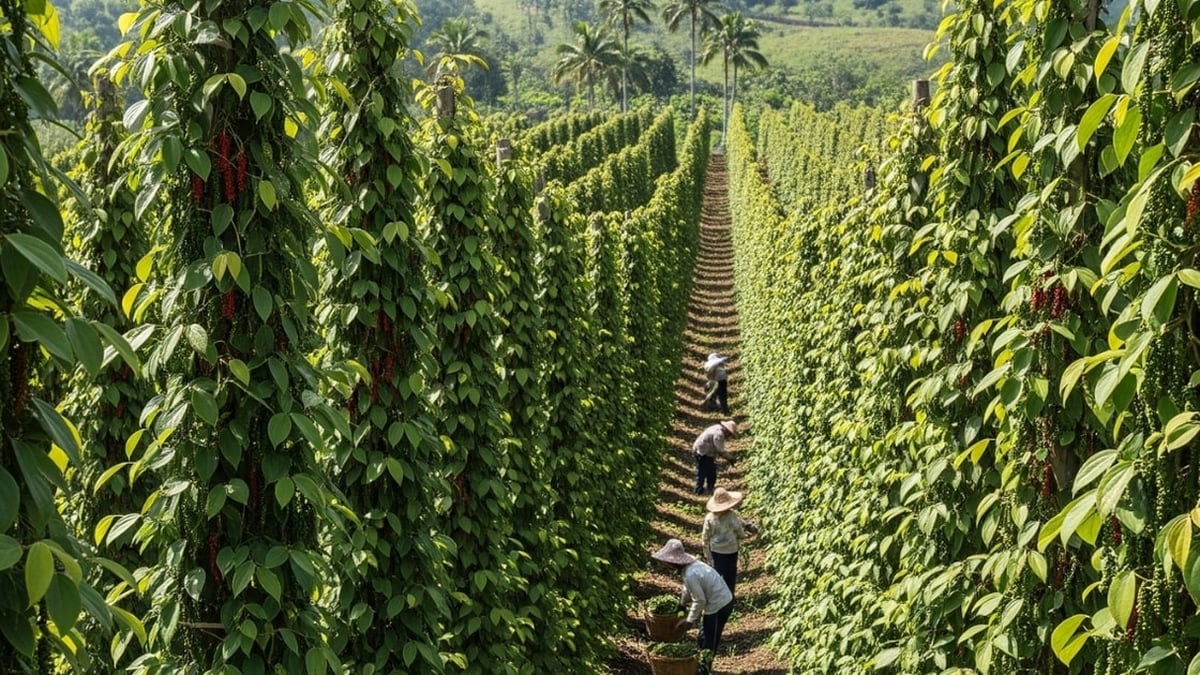
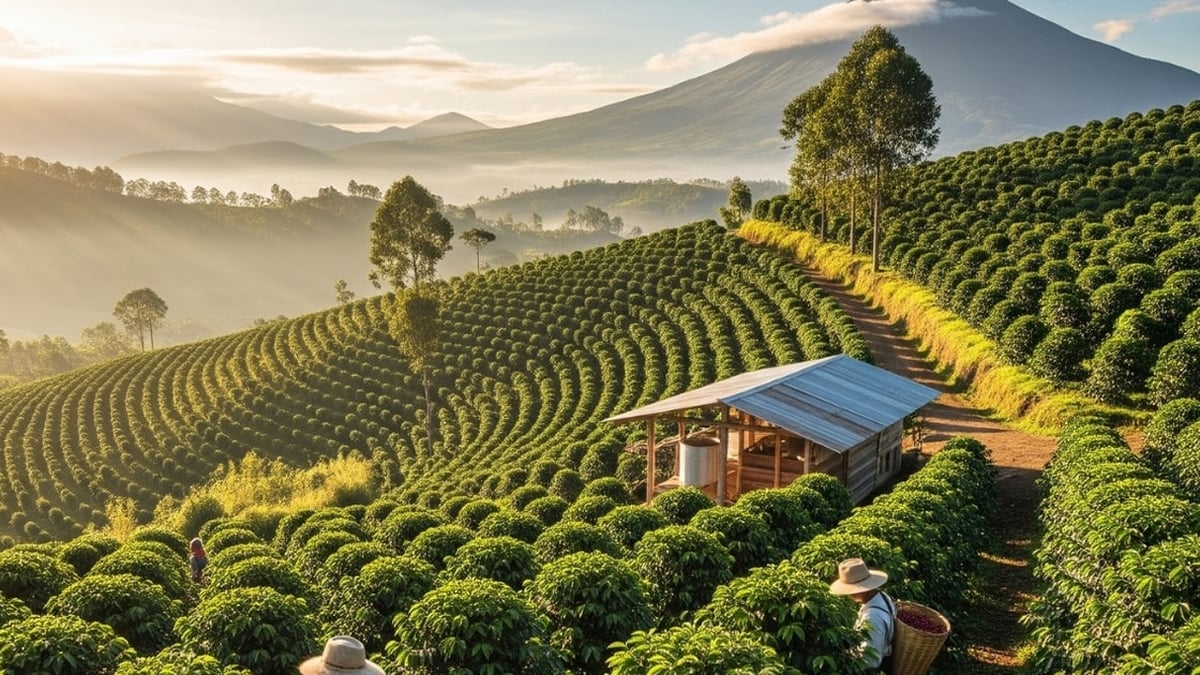






















































































Comment (0)